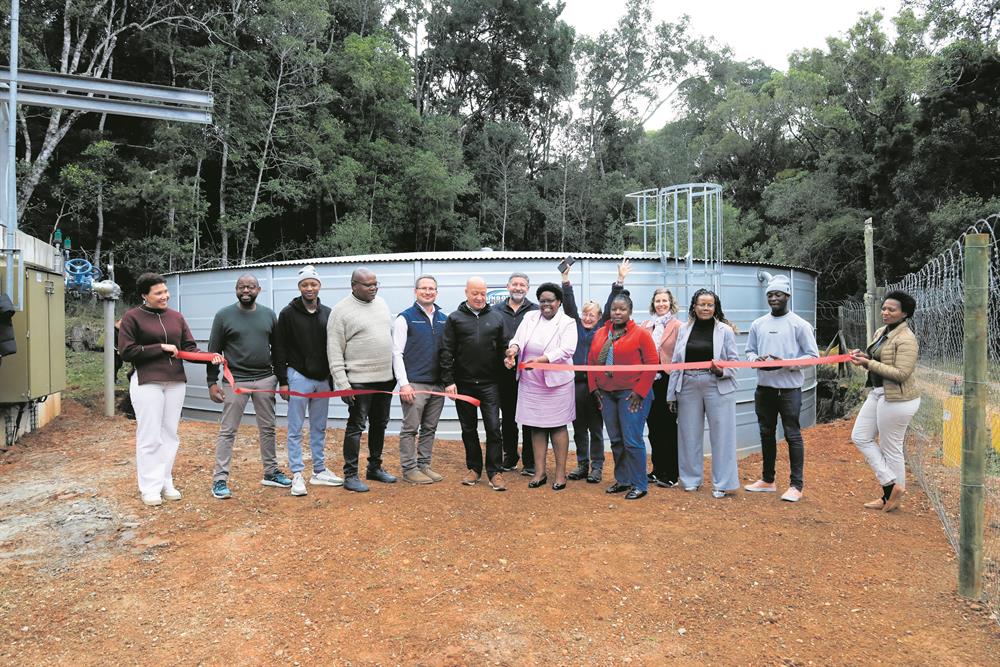ENVIRONMENTAL NEWS - Nelson Mandela University's (NMU) George Campus has taken a significant step forward in its long-term sustainability and climate adaptation efforts with the installation of a new 600kL water reservoir.
This comes on the heels of the recently completed 1000kL reservoir, creating a stronger, more integrated water supply system for the campus.
Constructed from galvanised steel, the new reservoir is certified for a lifespan of 10 to 20 years and is linked to the existing on-campus concrete reservoirs, boosting overall storage capacity. The upgraded system, which includes smart monitoring technology, aims to prevent water shortages and help the university better manage consumption during times of stress.
Campus president Dr Kaluke Mawila emphasised the practical importance of the upgrade.
"We are nothing without our cleaners, and our cleaners are nothing without water," she said.
"Gone are the days of multi-day water outages that left toilets unflushed, students unable to shower, teaching disrupted by dry taps and the campus vulnerable to social unrest. With plans in the pipeline to add another 1000 beds to campus residences, robust water infrastructure is vital to the university's future."

The reservoir also strengthens the campus' resilience to fire emergencies. Surrounded by lush woodlands, the campus is now better equipped to sustain itself until the fire brigade can respond.
The senior director of infrastructure services and space optimisation, Melvin Syce, highlighted the wider context. South Africa is in a water-stressed region, he said, with drought cycles - like the next expected in 2029 - having severe impacts. Ensuring a reliable water supply is therefore a key priority.
The NMU's sustainability engineer, Dr André Hefer, added that the new storage capacity should allow the campus to operate for two to three days even if a major municipal water failure occurs. He reassured the public that the reservoir stores already treated municipal water rather than raw water, eliminating contamination concerns.
Hefer also noted that a comprehensive water audit had identified inefficiencies in the past, including leaks, ageing infrastructure and facilities that previously relied heavily on municipal water.
The campus has now installed new water valves to better control flow and reduce waste during pipe repairs.

‘We bring you the latest Garden Route, Hessequa, Karoo news’
















